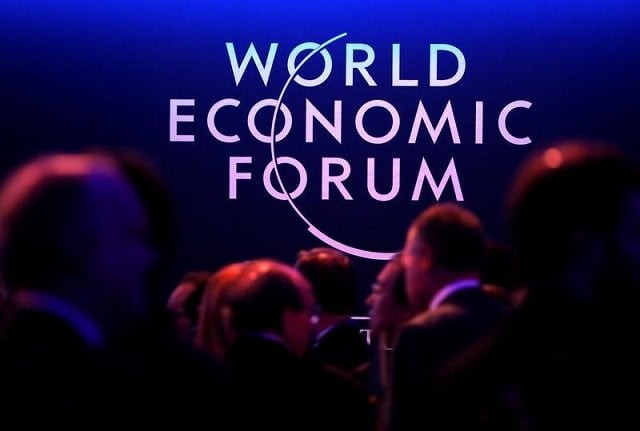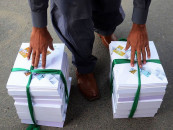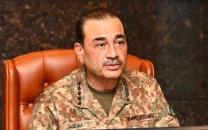Pakistan slips three notches on Global Competitiveness Index
Country fares poorly on indicators of freedom of press, corruption but improves on reducing organised crimes

Country's fares poorly on indicators of freedom of press, corruption but improves on reducing organised crimes. PHOTO: FILE
The country fared poorer than last year on indicators of freedom of press and corruption but significantly improved its ranking on reducing organised crimes and ensuring judicial independence. The life expectancy has gone down by six months to 58 years, according to the report.
One of the surprising outcomes of the report was that Pakistan remained at the bottom on the index of terrorism incidences despite marked improvement in the country's security situation and no major terror attack in the past one year.
Islamabad also remains on the bottom of the South Asian nations, according to the new report that compared governance, innovation, productivity and human development in 141 countries this time as opposed to 140 in the previous year.
The report, which the WEF's local partner Mishal released on Wednesday, ranked Pakistan at 110th this year as compared to 107th position last year.
The results are based on the outcomes of executive surveys and statistics from the international sources. The final rating of each country is based on 12 pillars and 103 indices. Out of 12, Pakistan's ranking deteriorated on seven, remained unchanged on one but improved on four pillars.
This year, among 103 global competitiveness indicators, Pakistan showed improvements on 42 key indices, whereas on 39 indices the country lost its previous position. In 10 indices, the position remained the same as last year while 12 new indices were introduced this year.
The report is an annual assessment of the factors driving countries' productivity and prosperity. The WEF defines competitiveness as the set of institutions, policies and factors that determine the level of productivity of a country.
On the institutions pillar, Pakistan improved two ranks and stood at 107 this year. The labour market efficiency ranking also improved by one notch to 120 but it was still closer to bottom 20 nations. On market size pillar, there was improvement of two points and the ranking stood at impressive 29. Similarly, on the pillar of business dynamics, the country's position jumped by 15 notches to 52.
The maximum deterioration was on the pillar of macroeconomic stability where Pakistan lost 13 ranks and stood at 116 due to marked deterioration in indices of inflation and debt dynamics.
On the infrastructure pillar, Pakistan's position slipped by seven notches to 105, on ICT adoption it lost four positions and slipped to 131 -among the bottom 10 nations.
Pakistan needs to bridge the digital divide between citizens' demand for governance and governments' ability to deliver services through digital and e-governance platforms, said Amir Jahangir, Chief Executive Officer of Mishal Pakistan. The public policy agenda should have ICT adoption as one of the key drivers for transforming the economy to succeed in the fourth industrial revolution era, he added.
On both the pillars of the human capital, the country fared poor. Its position on health pillar slipped by six notches to 115 and the ranking remained unchanged at 125 on the skills pillar.
On the pillar of products market, Pakistan's position was 126 - four positions lower than the last year. On the pillar of financial systems, the ranking deteriorated by 10 points and stood at 99.
On the pillar of innovation capability, Pakistan secured 79th position - four notches below the last year's level.
Compared with its regional peers, Pakistan ranked at the bottom. Among the five surveyed nations, India was still at top on 68th position despite losing 10 positions compared with last year. Sri Lanka at 84th position was the second most competitive economy in South Asia, followed by Bangladesh 105 and Nepal 108.
Strengths
The major areas where Pakistan made improvements was reduction in organised crimes in which its rating improved by nine positions to 112. The budget transparency index improved from 77 to 58, judicial independence from 70 to 63, intellectual property rights from 83 to 78, road connectivity from 62 to 52 and quality of research institutions improved from 41st position to 35.
Weaknesses
The country has to do a lot in many critical areas including improving efficiency of air travel where it's standing drop by four points to 93. The mobile broadband subscription ranking has also been slipped to 126. The internet users' index ranking dropped to 131 - down five notches.
On the index of inflation, Pakistan's ranking slipped from one in 2018 to 92, which should be a concern for the government of Prime Minister Imran Khan. On the debt dynamics, the ranking decreased from 124 to 134, positioning Pakistan among the bottom 10 surveyed nations.
On banks' regulatory capital ratio, the ranking deteriorated from 63 to 82.
On the corruption index, the ranking slipped from 99 to 101. The corruption index ranking dropped because of registration of more corruption related cases, said Amir Jahangir. It was the ranking of National Accountability Bureau that actually slipped from 99 to 101. The press freedom ranking slipped from 112 to 116.
On the terrorism incidences index, Pakistan remained at the bottom end of the GCR - the 141st position.
The government needs to move away from the narrative of a victim of terrorism, as it is not helping Pakistan, said Jahangir. It also shows the failure of the institutions that are responsible to build positive image of Pakistan, he added.
On healthy life expectancy years indicator, Pakistan's ranking slipped from 108 to 114.



















COMMENTS
Comments are moderated and generally will be posted if they are on-topic and not abusive.
For more information, please see our Comments FAQ